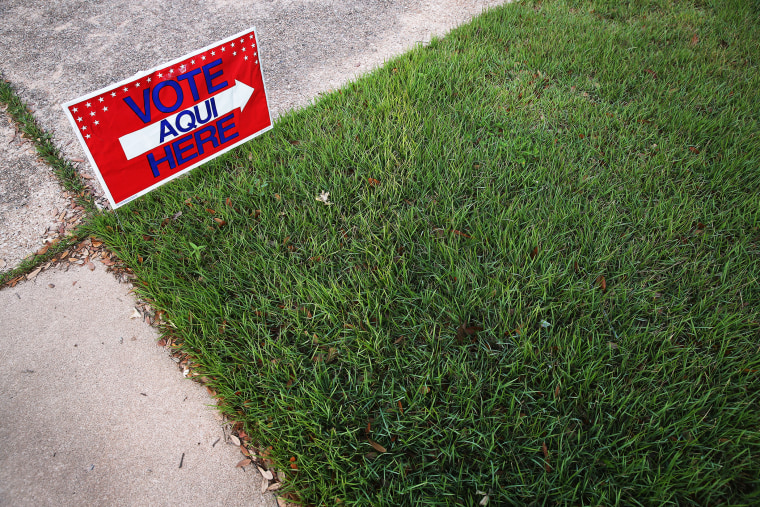A Texas judge has slapped down an effort by the controversial conservative filmmaker James O’Keefe to put obstacles in the way of a major voter registration drive in the state.
The judge dismissed a complaint that arose from an incendiary video made by O’Keefe’s organization, which purported to show illegal activity by Battleground Texas, a Democratic group that’s working to register Texans to vote. The judge acted after investigators derided the video as “little more than a canard and political disinformation.”
The news is a win for those looking to expand access to the ballot in the Lone Star State—and for state Sen. Wendy Davis, a Democratic candidate for governor there.
In the video, released in February to much fanfare on the right, a Battleground Texas organizer is surreptitiously recorded telling colleagues that the group has held onto phone numbers from voter registration forms that it gathered, and intends to contact people later this year to urge them to vote. O’Keefe claims in the video that this violates Texas election law, which bars registrars from recording phone numbers from voter registration forms. After the video provoked outrage among Texas Republicans, a court assigned two special prosecutors to probe the allegations against Battleground Texas.
In their report, first obtained Monday by the Texas political blog Burnt Orange Report, the special prosecutors wrote that the prohibition on recording phone numbers only applies to the official county registrar, not volunteer registrars like Battleground Texas activists. They submitted a motion to dismiss the complaint, which was approved by the judge.
The prosecutors also slammed O’Keefe for trying to tie Battleground Texas’s activities to Davis. “The video was particularly unprofessional when it suggested that the actions of Battleground Texas were advocated by a Texas gubernatorial candidate,” they wrote.
In the video, O’Keefe calls Battleground Texas “the new ACORN”—a reference to the community organization that was forced to close up shop in 2009 after O’Keefe released a deceptively edited video that claimed to uncover illegal activity by the group. Last year, O'Keefe agreed to pay $100,000 to one of the ACORN employees featured in the video.
But there’s more at stake here than O’Keefe’s already shaky reputation for reliability. Battleground Texas, which was formed by Obama campaign veterans, has worked closely with Davis' campaign, who is running for governor as a Democrat. The group aims to help make the state competitive for Democrats by registering millions of low-income and minority Texans.
Texas has one of the lowest turnout rates in the country. And because Hispanics in the state are registered to vote at a significantly lower rate than other ethnic groups, boosting their participation rate is crucial to Democratic hopes.
For the GOP, hampering that effort is a key strategy for holding onto power. Already, Texas Republicans have made registration more difficult: A 2011 law required that anyone registering voters complete an extensive training program, and imposed other restrictions. And the state’s strict voter ID law, currently being challenged by the Justice Department, has been shown to disproportionately affect hurt non-whites.
